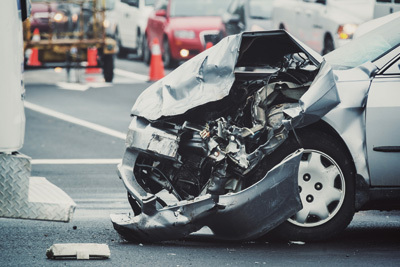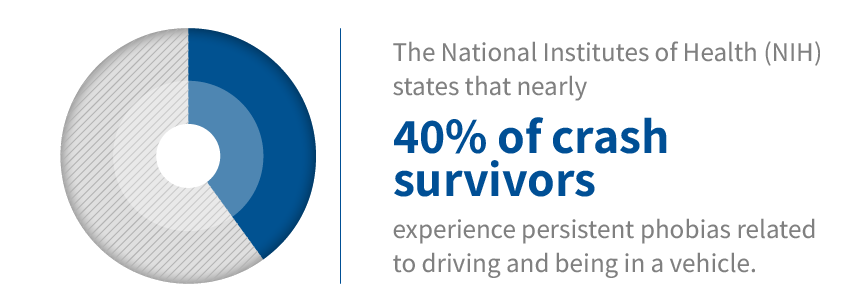The Surprising Effects Of Car Accidents On Mental Health
Being involved in a car accident is one of those unfortunate events that we hope never to experience, but we most likely will personally, or at least someone close to us will. While the physical injuries are difficult enough, there can often be an unseen, but entirely real, second trauma caused by such accidents. This second trauma is referred to as mental distress, and can lead to health, economic, and emotional repercussions with lasting and devastating effects far after the physical injuries have healed.

What is ‘Mental Distress?’
Mental distress is different from mental illness and a separate psychological condition. A person suffering from mental distress may experience issues with their behaviors and moods, how they act, and most importantly, how they feel internally. The combination of one or more of these factors can cause a considerable and negative impact on the individual’s life.
Fear of driving or even being in a car, shock, anxiety, changes in behavior, sleep disruptions, guilt, and anger are just some of the symptoms that can be caused by accidents. Often the lasting impact of mental distress causes more havoc on an individual’s life than the physical injuries.

The National Institutes of Health (NIH) has studied the issue and notes that: moderate and severe levels of anxiety can also be present for weeks or even months after an accident. Females are particularly susceptible to persistent anxiety following a car crash, with around 70% experiencing high levels of anxiety in the first month and almost 15% still experiencing moderate levels of anxiety 6-8 months later.
The NIH explains further that: in order to cope with PTSD, an accident victim often requires regular therapy for possibly a prolonged period of time. They also may require medications and other aids to help them return to daily life. The costs of this treatment for mental conditions can be just as expensive, if not more so, than the treatment for their physical injuries.
The US Dept, of Veteran’s Affairs states that an estimated 9% of motor vehicle accident survivors will suffer from post-traumatic stress disorder (PTSD). In fact, motor vehicle collisions are the leading cause of PTSD in civilians in the US.
So when does ‘normal’ anxiety cross over into PTSD?
The American Academy of Family Physicians describes recognizing when anxiety may have moved beyond into PTSD as: For most people who are in a traffic accident, the overwhelming feelings go away over time. Sometimes those feelings don’t go away or they become stronger. They can change the way you think and act. Strong feelings that stay with you for a long time and get in the way of everyday life are signs of post-traumatic stress.
- An ongoing, general feeling of uneasiness.
- Anxiety about driving or riding in vehicles.
- Not wanting to have medical tests or procedures done.
- Irritability, or excessive worry or anger.
- Nightmares or trouble sleeping.
- A feeling that you’re not connected to other events or people.
- Ongoing memories of the accident that you can’t stop or control.
What should I do if I believe I’m a victim suffering from mental distress?
A car accident can be very violent and the injuries and mental trauma can be serious and long lasting. Some victims require a range of assistance and support from the medical and legal community to get their lives back on track and receive fair compensation for what they have suffered.
If you think you might be experiencing mental distress from a car accident, do not be afraid to ask for help. Please seek both professional medical and legal advice on your specific situation to determine the best course of action to begin the healing process and explore the legal resource options available to you. There’s health and hope at the end of the process!
As a premier provider of personal injury services, Omni works with attorneys to help people get the medical care they need. Omni’s extensive network of certified medical providers can assist individuals in their local area. For more information about how we can help you in your personal injury business, please contact us